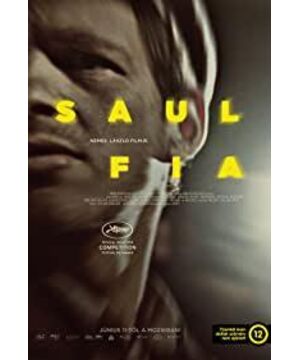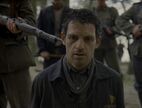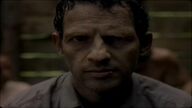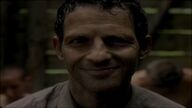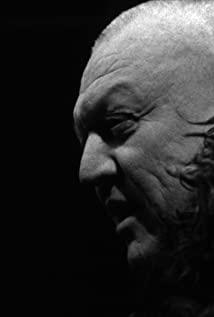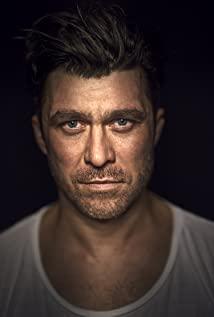For director Laszlo, films about concentration camps have become unpopular in recent years. A large number of visualizations present cruel reality and the portrayal of heroic characters are like repeating old tunes. How to break through the old tune Having a model to express a more personal image language has become an urgent issue for directors to consider. Fortunately, the movie "Son of Sol" has successfully broken through all the fixed templates, and has a great degree of innovation from images to techniques to the shaping of characters.
"Son of Sol" sets the background of the era in the Auschwitz concentration camp in 1944. The perspective of the camera is on Sol, a prisoner detachment member. The story is so simple that the detachment member wants to bury a prisoner in the concentration camp. His so-called "son". In fact, the story of the film does not have much to be commended. As a directorial debut, it is not necessary to demand the multiplicity of the narrative text structure. It only needs to add clear and accurate expressions on the basis of mastering the narrative skills to be successful. While the narrative doesn't stand out in Son of Thor, it's at its best in other aspects of cinematic technique.
The film can first glimpse from the photography that this is the temperament of the author's film, and this temperament is precisely the reflection and shock of the theme that the film conveys from the inside out. The director, Laszlo, learned from Bella Tarr, and used large long shots and scene scheduling to show the external narrative. At the same time, on the basis of long shots, he used a small aperture and shallow depth of field to focus on the hero Sol, deliberately false. Change the surrounding environment so that the camera can participate in the narrative. This kind of shooting method, which seems to be a bit stream-of-consciousness, is similar to Malick's "The Tree of Life", which turns images into modernist aesthetic characteristics. It is said that this kind of photography technique of "holding a pipa half-covered" makes it easier to vent the inner emotional tension of the film. In the blurred picture, we can see piles of bare skin-colored corpses, dim lights and jet-black iron gates, and Nazi concentration camps in dark gray tones. Under this kind of blurring, the audience has a special sense of curiosity about the images that were not clear before, and hoped that Sol could get close to those environments so that the audience could see clearly. Coupled with the extremely paranoid character behavior of Sol in the film, the cold, terrifying and depressing atmosphere created by the whole environment has reached the extreme.
The film's unique approach to photography is also commendable in terms of sound. The elements of the traditional soundtrack are almost abandoned in the film, replaced by ambient natural sound effects throughout. In such a movie with a war background and the huge narrative center of Auschwitz, the use of sound effects is even more sensible. In the film, the most representative sound effects are mixed together with the environment, whether it is the wailing crowd, door scratching, knocking in the gas chamber, or the noisy orders, gunshots, and artillery fire in the outdoor environment. Fit to achieve the perfect unification of auralization and visualization.
"Son of Sol" also produces the contradiction between the individual and the collective in the story. Those who suffer in the war always need collectivism to go through the hardships. The film also mentions that the contingent plotted to escape from prison before being killed. In this case, Sol desperately wanted to find the rabbi for the "son" who was lucky enough to survive in the gas chamber but was strangled to death. A eulogy to bury him. And it is precisely because of Sol's paranoid behavior that the well-planned jailbreak failed to be successfully implemented. When everyone threw their resentment and even hostility to Sol, Sol said: "In fact, we are already dead." Probably from the beginning of the film, we must distinguish the binary between art and real life. Independence, Saul's words are precisely the most true portrayal of the people in hell in Auschwitz. In Auschwitz, suffering far outweighed hope.
Director Laszlo not only used techniques to show that cruel history, but also stripped the contradictions of the detachment, the contradictions of Sol, and the contradictions of life and death from the film. In the view of existentialists, The contradiction that this pair of dualism forms is precisely the awakening of self-consciousness. In Sol's view, the child who survived the gas chamber is like a miracle, and he regards this child as his own son, which is more like a religious meaning inherent in the film.
At the end of the film, Sol sees a blond child of Germanic descent who smiles for the first and last time. The miraculous effect of the child in the film reminded everyone again at the end. When religious miracles appeared, across race, color and class, everyone stood together and prayed for redemption. In Auschwitz, mortals are mortal, but the redeemed live forever.
Thor and the thousands of people who have been ravaged to death in the war will live on forever.
View more about Son of Saul reviews


